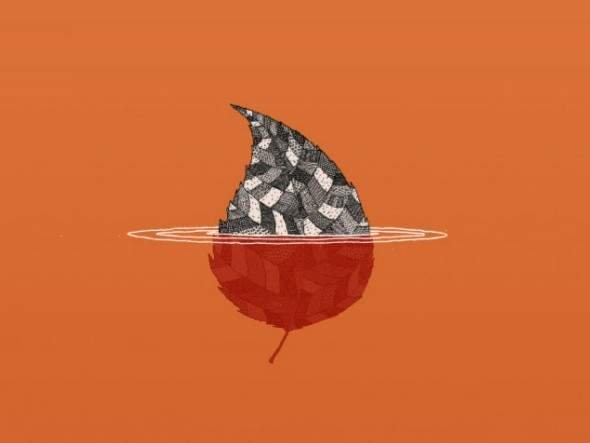There is not enough guilt to remedy the past or anxiety that can change the future

Between the mistakes of the past and the uncertainty about the future, the present escapes us. The ability to remember the past and the ability to project the future can become a double-edged sword that we use, more or less unconsciously and with very little skill, to turn a good present into a miserable reality.
In this regard, the philosopher Ayn Rand wrote: "Anxiety and guilt, antithesis of self-esteem and unmistakable signs of a diseased mind, are disintegrators of thought, distorting values and paralyzing factors of action".
Of course, that does not mean that we can erase the past in a stroke or that we should close our eyes to the uncertainty that surrounds the future. But we can learn to live with those nonexistent times assuming a healthier perspective that allows us to fully enjoy the present.
Dragging the blame will not remedy the mistakes of the past
José Saramago wrote: "What is the use of repentance, if it does not erase anything that has happened? The best repentance is simply change. "
Guilt has a precise function: it is a state of inner discomfort that tells us that we have contravened our values or the rules of someone wrong. It is the sign of our conscience that tells us that we have acted badly.
The problem begins when we get stuck in guilt. Many people, when they understand that they can not repair the damage caused, use guilt to punish themselves, as a method of self-flagellation. That way they get stuck continuously in the past, denying themselves the possibility of moving on.
The truth is that this idea (of religious origin) of inflicting pain to atone for the sins committed is counterproductive. As much as you punish yourself, you will not be able to repair the damage. Punishing you will not go back a long time, it will only sour your character.
On the contrary, as Saramago indicated, the best way to show repentance is to change. And for this it is necessary to look to the future. An error is worth it only when we learn from it. Once we have learned the lesson, we need to turn the page and move on.
No amount of anxiety can change the future
Eduardo Galeano pointed out: "Those who are not prisoners of need, are prisoners of fear: some do not sleep because of the anxiety of having things that they do not have, and others do not sleep because of the fear of losing the things they have".
While guilt is a feeling anchored to the past, anxiety is an intrinsic feeling of the future. Anxiety is a warning response of the conscience to the possibility of something bad happening. It is a sense of diffuse fear usually caused by uncertainty and the impossibility of controlling all the factors.
However, to cling to control is, in the end, the expression of a deep distrust in oneself, is to think that we will not be able to deal with the circumstances that life brings. Thus, the transience and the change brought by the future are only generators of anxiety for those who cling uselessly to the immutable.
Then the anxiety will run wild and make us imagine the worst possible scenarios. With that negativity in mind, we find it impossible to enjoy the present because our mind is already in the future, living those problems that we glimpse, but that probably never materialize.
In other words: anxiety makes us live in a nightmare that exists only in our imagination, while we join in a loop of concerns that prevents us from planning effective actions that help us avoid the circumstances we fear.
There is an escape route: Live in the present
The key is to learn to live in the here and now, developing a mindfulness attitude that keeps you anchored to the present. That does not mean that from time to time we do not have to look to the past or the future, but we must make sure to turn our eyes to the present as soon as possible.

Posted using Partiko Android